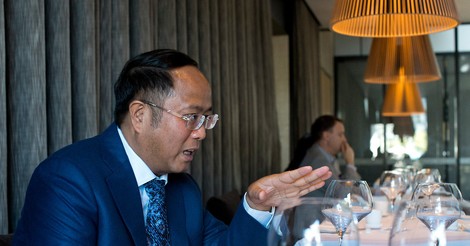Your podcast discovery platform
Curious minds select the most fascinating podcasts from around the world. Discover hand-piqd audio recommendations on your favorite topics.

piqer for: Globalization and politics Global finds
I am an Australian freelance journalist focussing on conflicts, politics, and warzones around the world. I have been working as a journalist for over 5 years, having reported from Australia, Germany, China, Egypt, Palestine, and Ukraine. I am especially interested in the way that new technologies are being used in conflict zones in unexpected and often disturbing ways. During my time working as a journalist, I also co-founded open-source war reporting site Conflict News.
Australian Politics Is Open To Foreign Cash, And China Has Much To Gain
Australia, as a country, is a contradiction. It is an English-speaking and culturally European nation surrounded by rising Asian giants, to whom it has grown rich selling vast amounts of minerals. Long gone are the days when the country had strong economic ties to the Commonwealth — now nations like China, South Korea, India and Japan constitute its top trading partners.
But throughout all of this, Australia has kept itself militarily aligned with the United States, something codified in the ANZUS mutual defense pact and made more tangible through several large US defense installations within the country. This results in a balancing act between economic interests (primarily linked to China) and military ones (primarily linked to the US) — a balance which China appears to want to upset.
In recent years, there have been several scandals relating to the relationship between Australian politicians and Chinese business people with ties to the Chinese Government. Most recently an investigation has revealed that several Chinese Australians paid large sums of money to key political parties, and then attempted to use this as leverage to force parties to change their positions on the South China Sea dispute.
As an Australian, it is plain to see that China is gaming the Australian political system. However as this article by Damien Cave and Jacqueline Williams at the New York Times clearly shows, they are joining a game with many players. Australian political donations laws are very weak when compared globally, and large corporations, lobby groups, religious groups and other pressure organizations are able to exert an inordinate influence in politics. The sad fact is that it might take foreign political influence for the country to finally face up to this broken and corrupt system.
